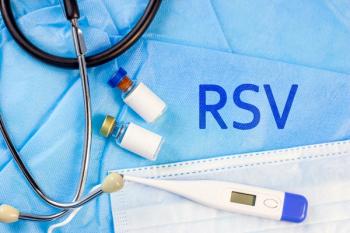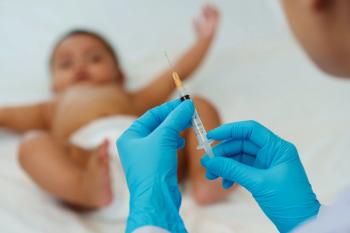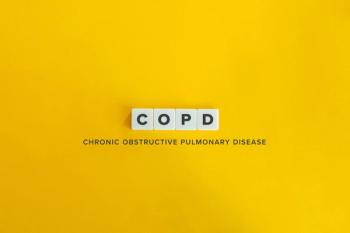
Clinical Trial Updates: Early Data on Remdesivir for Severe COVID-19
New clinical trial updates on remdesivir as a potential treatment for coronavirus disease 2019 (COVID-19) were announced today.
New clinical trial updates on remdesivir as a potential treatment for coronavirus disease 2019 (COVID-19) were announced today.1,2,3
Remdesivir, a nucleoside analogue prodrug, is being looked at as a potential therapy for the virus, but there is currently no evidence supporting its efficacy and safety in this setting.
Although a study from the National Institutes of Health (NIH) suggested positive results for remdesivir’s use in advanced COVID-19, a separate study published in the Lancet did not find an association between remdesivir treatment and clinical benefits.1
The Lancet study, which is the first randomized trial to evaluate remdesivir’s efficacy in treating COVID-19, suggested that remdesivir did not demonstrate efficacy in hospitalized patients with the virus who are critically ill, according to the results. However, the investigators noted that the trial was stopped early due to difficulty enrolling new patients, warning that interpretation of the findings is limited.1
Conducted at 10 hospitals in Hubei, China, the study included 237 adults admitted to the hospital with laboratory-confirmed severe acute respiratory syndrome coronavirus 2 (SARS-CoV-2) infection between February 6 and March 12, 2020. Eligible patients had to be enrolled within 12 days of symptom onset, have pneumonia confirmed by chest imaging, and oxygen saturation of 94% or lower. The primary endpoint of the study was time to clinical improvement up to day 28, defined as the time from randomization to the point of a decline of 2 levels on a 6-point ordinal scale of clinical status or discharged alive from hospital, whichever came first.1
For the study, patients received either daily infusions of remdesivir (158 patients; 200 mg per day on day 1 followed by 100 mg on days 2 to 10) or placebo infusions (79 patients) for 10 days. One patient in the placebo group withdrew before initiating treatment. Additionally, patients were allowed concomitant use of lopinavir-ritonavir, interferons, and corticosteroids.1
Overall, the results showed that remdesivir use was not associated with a difference in time to clinical improvement.1
Although not statistically significant, pre-specified secondary outcomes demonstrated that time to clinical improvement and duration of invasive mechanical ventilation were shorter in patients treated with remdesivir within 10 days of showing symptoms, compared with standard care.1
Remdesivir was associated with adverse events (AEs) in 66% of recipients versus 78 of placebo recipients, and treatment with remdesivir was halted early due to AEs in 12% of patients versus 12% of those who stopped placebo early.1
“No statistically significant benefits were observed for remdesivir treatment beyond those of standard of care treatment,” the investigators wrote in the study. They noted that future studies, including earlier treatment in patients with COVID-19 and higher-dose regimens or in combination with other antivirals, may be needed to better understand its potential efficacy.1
On the other hand, the NIH study, known as the Adaptive COVID-19 Treatment Trial (ACCT), indicated that hospitalized patients with advanced COVID-19 and lung involvement who received remdesivir recovered faster than similar patients who received placebo. The randomized, clinical trial involves 1063 patients and is the first launched in the United States to evaluate an experimental treatment for COVID-19.2
According to preliminary results, patients who received remdesivir had a 31% faster time to recovery than those received placebo (p<0.001). The median time to recovery was 11 days for patients treated with remdesivir compared with 15 days for those who received placebo; results also suggested a survival benefit, with a mortality rate of 8% for the remdesivir group versus 11.6% for the placebo group (p=0.059), according to NIH.2
More detailed information about the trial results will be available in a forthcoming report, according to the release.2
Gilead today also announced topline results from the phase 3 SIMPLE trial, which is evaluating 5-day and 10-day dosing of remdesivir in hospitalized patients with severe COVID-19. According to Gilead, 10-day treatment of remdesivir “achieved similar improvement in clinical status compared with those taking a 5-day treatment course.”3
According to Gilead, the results showed that time to clinical improvement for 50% of patients was 10 days in the 5-day treatment group and 11 days in the 10-day treatment group. More than half of patients in both groups were discharged from the hospital by day 14 (5-day: 60.0%, n=120/200 versus 10-day: 52.3% n=103/197; p=0.14). At day 14, 64.5% (n=129/200) of patients in the 5-day treatment group and 53.8% (n=106/197) of patients in the 10-day treatment group achieved clinical recovery, according to the data.3
“These study results complement data from the placebo-controlled study of remdesivir conducted by the National Institute for Allergy and Infectious Diseases and help determine the optimal duration of treatment with remdesivir,” Merdad Parsey, MD, PhD, chief medical officer, Gilead Sciences, said in a statement.3 “The study demonstrates the potential for some patients to be treated with a 5-day regimen, which could significantly expand the number of patients who could be treated with our current supply of remdesivir. This is particularly important in the setting of a pandemic, to help hospitals and health care workers treat more patients in urgent need of care.”
Full data were not released, but Gilead said it plans to submit the results for publication in the coming weeks.3
References:
1. Wang Y, Zhang D, Du G, et al. Remdesivir in adults with severe COVID-19: a randomised, double-blind, placebo-controlled, multicentre trial. Lancet. April 29, 2020. https://doi.org/10.1016/ S0140-6736(20)31022-9
2. NIH Clinical Trial Shows Remdesivir Accelerates Recovery from Advanced COVID-19. National Institutes of Health; April 29, 2020. Accessed April 29, 2020.
3. Gilead Announces Results from Phase 3 Trial of Investigational Antiviral Remdesivir in Patients with Severe COVID-19. Gilead; April 29, 2020. Accessed April 29, 2020.
Newsletter
Pharmacy practice is always changing. Stay ahead of the curve with the Drug Topics newsletter and get the latest drug information, industry trends, and patient care tips.























